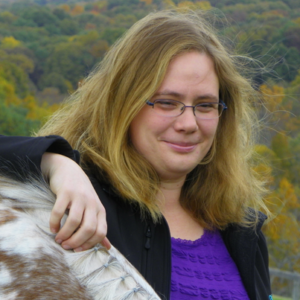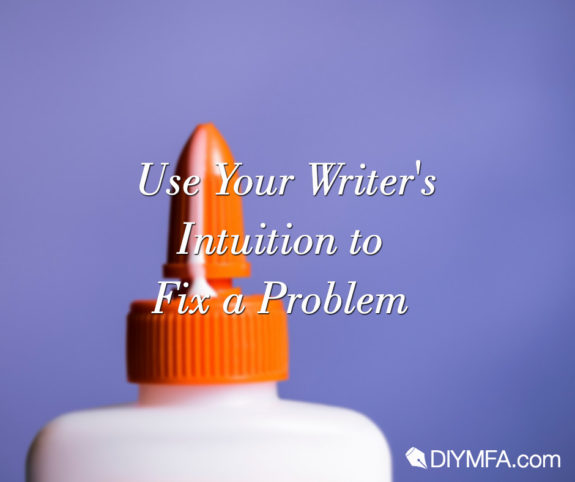I was working on my WIP recently. I have my project set up where each scene has its own file, which organizes things nicely, but also lets me easily see which scenes are coming up next. When I get to the end of one scene, I often look at the next scene and think, “Oh yeah, I love this scene. I want to keep editing.” But other times face a problem when I think, “Well, I guess I have to keep going.”
For a long time I didn’t put any meaning to this. It was just a part of writing, right? Then I remembered some writing advice that said, “If you don’t enjoy reading your story, why would anyone else?” and I began to pay more attention when working on my story felt like a slog. That is, when I would get distracted by the Internet, or do household chores, or write words that simply didn’t lead anywhere.
It finally occurred to me that all of these instances were actually my writer’s intuition saying there was some sort of a problem with the story. It wasn’t until later that I was in a class taught by Mary Robinette Kowal, where she pointed out that the type of difficulty you’re having in a scene can actually be a clue to what its weak point is. This information was extremely helpful, because while writer’s intuition can clue you in to the fact that there is a problem fairly easily, it’s a whole different skill set to identify what the problem is, much less fix it.
Problem 1: You Want to Take a Nap
So you’re writing or editing along through your story, when you start getting tired. Wouldn’t an afternoon nap be lovely? This one is actually pretty easy to identify if you think about it. Getting tired often means that your story is boring you. It’s not gripping, it’s not engaging. And if you’re bored, your readers will be too.
Fix It
Go back to the last place your story excited you and try taking it in a different direction. What would get the characters moving and the plot shaking? While there doesn’t have to be excitement during every moment of your story, it should always be engaging or interesting.
Problem 2: You’re Having a Staring Contest with Your Screen
You sit down to write and the words aren’t coming. Earlier today you had all these ideas, this urge to write, and now that you’re in front of your computer screen (or whichever writing medium you prefer) and there are no words. This generally happens because you have no idea what’s going to happen next.
Fix It
You can start getting words on the page by thinking about what your main character wants and how they could possibly get to that goal. And if you don’t know what their goal is in their current situation, you can start there.
Think of the smartest way they could achieve their goal, and then write it going wrong. Or, have them act with some sort of misunderstanding about how to get to their goal, and have it go right, which means the situation gets worse. Don’t worry about backstory or ‘essential’ scenes for the moment; the solution is to get the story moving by taking action toward a goal.
Problem 3: You Can’t Sit Still
You sat down to write, and suddenly you’re doing laundry? You hate laundry. Oh! And you told your spouse that you would do the dishes, and look how full the sink is. You’re procrastinating, and the reason may be that the next scene is hard and you’re trying to avoid writing it. It can be for any number of reasons. Personally, I hate writing conflict, so I tend to put off writing arguments and disagreements as long as possible.
Fix It
The truth of the matter is that there’s no fun method for getting past this sort of block. You just have to power through. If the scene is difficult to write, it’s not going to magically get any easier. Turn off your editing brain, set a timer for ten to fifteen minutes, and just write. Even if the character is just talking through the problem. Sometimes I, the author, will have a conversation with my character. Anything to get words on the page to work on the scene.
Problem 4: Nothing you Write is Good Enough
You’re writing, very possibly at a good pace, only you’re writing the scene or paragraph or sentence over and over with slight tweaks. You’re moving, but you’re not getting anywhere.
Fix It
In general this means you don’t believe in the scene you’re writing. So, why does this scene exist? Sometimes as writers we think we need a scene in order to get from A to B, or to introduce some information that is essential! to the reader. But the inability to write anything you’re happy with for an extended period can point to an underlying issue.
One of my frequent issues is trying to force a character to do something I, the author, need to have happen even though it doesn’t fit with the character’s internal motivation. This means my character isn’t acting like my character and that rubs my writer’s intuition the wrong way. In this case I almost always have to yield to the character. I have a saying: “There is a way this [my story] makes sense; I just have to find the how.” This encourages me to change up some of my expectations about the scene or the setting. If you’re entirely convinced it has to take place in a kitchen, think about what changes if it doesn’t. If that doesn’t completely break the premise of the story, then change it. Actually, change it anyway and see what shakes loose.
In all of these instances, the important thing is to look at your story from a different angle. If your writer’s intuition is telling you that the way you’re currently going about things isn’t working, then you have to pivot. Try something else until that beautiful moment when your story clicks into place and suddenly you’re making progress. Sometimes it’s not a quick fix, and sometimes you may not know how to proceed. But the more problems you have writing your stories, the better you get at identifying them, and the more you try to fix, the better you get at fixing them.

Laura Highcove has a degree in computer science, which is obviously why she is a fantasy writer. She is influenced by anime, video games, table-top gaming, programming, horses, and Norse mythology in no particular order. She currently lives in beautiful Blacksburg, Virginia with her computer, two cats, and husband. Her psychic abilities have not yet developed, but she remains hopeful. If you’d like to learn more about her, head over to her website and sign up for her newsletter (and get a free short story) here.







